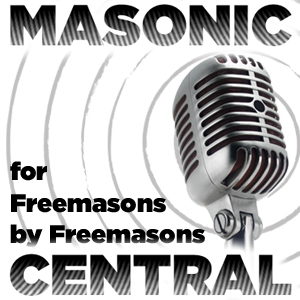In this episode of Masonic Central, recorded on March 15, 2009, UCLA Professor Margaret C. Jacob explors with us how she became the eminent scholar of Freemasonry that she is today. In that conversation, we look behind the veil of time to learn from her about the early origins of the craft, its present, and future of Freemasonry. This was a unique opportunity to hear from the top American scholar on the subject, and a program I strongly recommend that you listen to. Give a listen to this 2009 interview with Dr. Jacob and decide for yourself how far Freemasonry has stretched from the armchair historian into scholarly academia.
Some say that history is written by the victors. That triumphs are in fact triumphant, and the losses are only momentary set backs in a progressive path to the eventual story that you read in the history books.
But at times some histories run concurrently with others, and that there isn’t really a victor or vanquished, but instead parallel paths where points merge and blend together. Freemasonry, it would seem, is just one of these histories where its various paths of existence seem to weave in and out of society and with other branches of itself.

For many years the fraternity has sprouted its own cadre of story tellers, its own historians. From Anderson’s early mythologies of its existence, to Yarker and Pike to name only a few, none have ever really stepped out of the box to understand the intricate workings as it relates to society. Robinson tried to do some justice, as did Ridley in his historical work, but neither brought the study of the Freemasons out of the realm of the speculative and in to academia, at least not in any meaningful way.
It wasn’t until the last decade or two that the study of Freemasonry took on a more meaningful study where today the craft stands at a turning point in the broader study of civil society. At the helm of that change is the scholarship of UCLA professor, Dr. Margaret C. Jacob.
Jacob, at the time of the interview, was one of the eminent scholars of Freemasonry, studying the role of the fraternity looking for its context within the world it inhabited. One of the interesting subjects covered was the Masonic ephemera horde amassed by the Nazis in WWII, and confiscated by Russian allied troops and taken back to Moscow and recovered in the post Cold War era, a topic Jaconb covers in her book Strangers Nowhere in the World.
Masonry still has its arm chair and library historians, but Dr. Jacob has elevated the speculative history of our gentle craft to the hallowed halls of the university, and its from this study that our understanding of the fraternity today has far exceeding beyond what our understanding was of it before.
In the episode we talk about:
- The Nazi/Russian Masonic Archives
- The Protocols of the Eldars of Zion
- The Illuminati
- The Enlightenment
- Voltaire and Ben Franklin
- Freemasonry in academia
- R.W. Tom Jackson
- And much more.
You can read more on Dr. Jacob on her UCLA biography.
Works concerning Freemasonry by Dr. Margaret C. Jacob:
- Living the Enlightenment: Freemasonry and Politics in Eighteenth-Century Europe
– 1991
- The Origins of Freemasonry: Facts and Fictions
– 2005
- The Radical Enlightenment – Pantheists, Freemasons and Republicans
– 2006
- Strangers Nowhere in the World: The Rise of Cosmopolitanism in Early Modern Europe
– 2006


Wow,, Awesome
Pingback: The Origins of Freemasonry & Revolutionary Brotherhood | Freemason Information